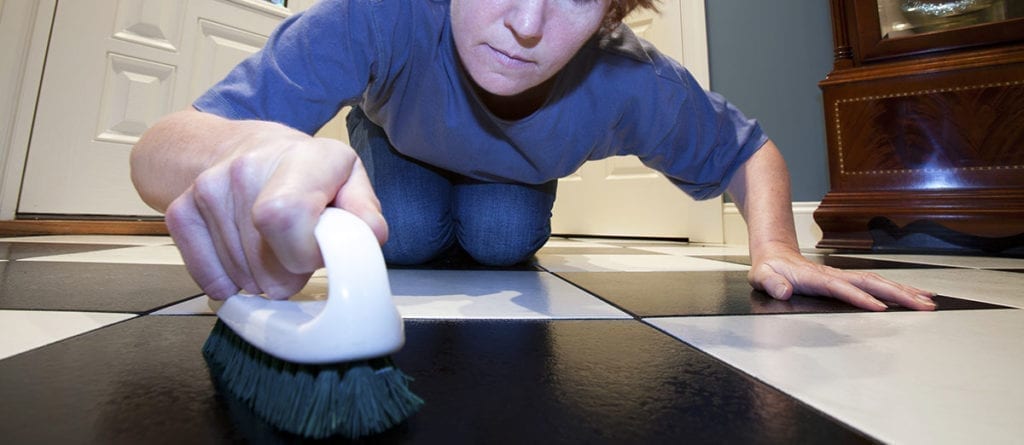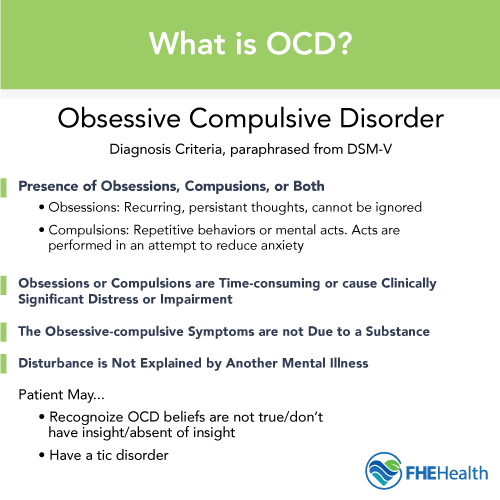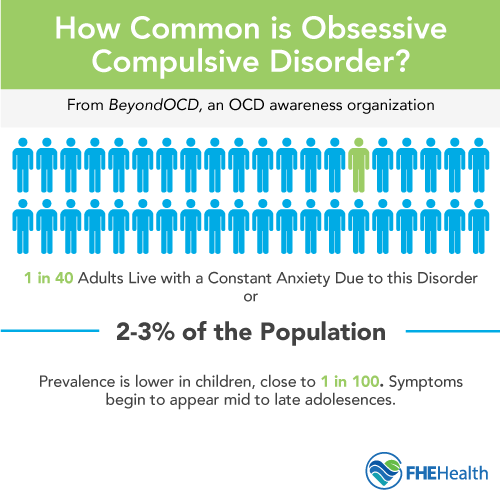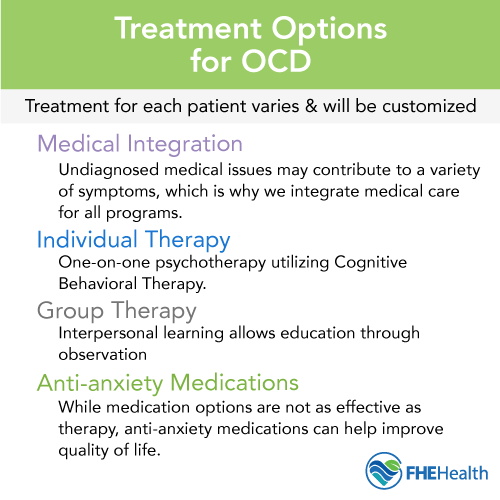
It’s not uncommon to hear obsessive-compulsive disorder, or OCD, used in the context of a joke. For example, someone who prefers to keep their home clean may say, “Oh, I’m OCD about cleaning.”
However, there’s a difference between a preference and a compulsion, and that’s what separates real OCD from the kind commonly used in colloquial speech. People with obsessive-compulsive disorder have a need to do certain things as a routine, to the point where it can control their lives.
On this page, we discuss what OCD is, how it manifests itself in those who suffer from it, common OCD treatments and FHE Health approaches this condition with the aim of lessening the symptoms and giving our patients more control over their lives.
What is OCD?
 We all experience that feeling of anxiousness or fear when we think we forgot to lock our car door or turn off the stove when we left our house. However, that little burst of obsessive-compulsive behavior that you experienced is not even close to what an individual diagnosed with Obsessive Compulsive Disorder endures on a daily basis. For those who have been diagnosed with Obsessive Compulsive Disorder, these feelings and behaviors are unwanted, uncontrollable, and very overwhelming.
We all experience that feeling of anxiousness or fear when we think we forgot to lock our car door or turn off the stove when we left our house. However, that little burst of obsessive-compulsive behavior that you experienced is not even close to what an individual diagnosed with Obsessive Compulsive Disorder endures on a daily basis. For those who have been diagnosed with Obsessive Compulsive Disorder, these feelings and behaviors are unwanted, uncontrollable, and very overwhelming.
Obsessive Compulsive Disorder, better known as OCD, is a mental health disorder in which individuals experience repetitive, obsessive thoughts and compulsive behaviors. Unfortunately, these thoughts and behaviors negatively affect the way these individuals live their lives and may influence the way they think, their decision making, and their social behavior. Many individuals suffering from OCD feel hopeless because they are incapable of overcoming these compulsive thoughts and behaviors, but have not been successful when it comes to accomplishing this task.
Obsessive Compulsive Disorder is said to effect 1% of the U.S. population and is present in both men and women. Many individuals begin to experience OCD around the age of 19, but there have been many reports of OCD being recorded in teens as young as 14 years of age.
OCD Is Marked by “Obsessions” and “Compulsions”
As the name suggested, the lives of people with OCD are controlled by obsessions and compulsions. Here’s a brief explanation of what these two components are and some key examples, courtesy of the International OCD Foundation:
Obsessions
A person is obsessed with someone when one or two thoughts regularly dominate their thinking. People with OCD often complain that they cannot get away from thinking one thing in particular, or they are constantly aware of something that bothers them, and that thinking about their obsessions consumes their life. Here are a few examples of the most common obsessions reported by patients with OCD.
- Contamination: Hygiene is one of the most common obsessions exhibited by patients with this condition and corresponds to one of the most common compulsions. In these cases, people notice any time anything isn’t clean, whether it’s a part of their body or something in their living space.
- Unwanted/perverse thoughts: Many obsessive-compulsive people say that they can’t stop thinking the same few unwanted thoughts. Often, these thoughts deal with taboo sexuality.
- Loss of self-control: OCD patients often fear doing something they don’t want to do, whether it’s harming themselves or those around them, or even saying something obscene in public.
- Perfectionism: Often OCD patients feel the suffocating need for everything to be in its place and for the life they’re living to be perfect. This is why many of the top performers in academia and business tend to have slight obsessive-compulsive tendencies.
Compulsions
Compulsions are not dissimilar from obsessions, but they involve the need to perform actions on a routine basis or over and over in a single sitting. Here are a few examples of compulsions that a person with OCD may experience.
- Cleaning: This goes hand-in-hand with the obsession about being as clean as possible. People with OCD commonly wash their hands or something that they use often as much as hundreds of times per day.
- Double-checking: Going back to the example of a regular person double-checking whether they locked the car before going into a store, OCD patients often experience this need in a much stronger way. For example, a person may hit the lock button 10 or more times, or flip a light switch a set number of times to prevent worrying about it after leaving.
- Repeating words or phrases: Many people with obsessive-compulsive disorder feel like they need to say a word more than once or an extraneous phrase every time they talk, almost like a tic.
- Mental compulsions: Mental compulsions resemble something in the middle of an obsession and a compulsion. Some people, for example, only set alarms and timers to certain numbers as a form of superstition about numerical patterns.
 The fact that OCD is often used in a casual way to describe someone being overly worried or anxious about something obscures the number of real cases of this difficult condition in the United States, but
The fact that OCD is often used in a casual way to describe someone being overly worried or anxious about something obscures the number of real cases of this difficult condition in the United States, but 
 There are a few ways to manage OCD:
There are a few ways to manage OCD:







